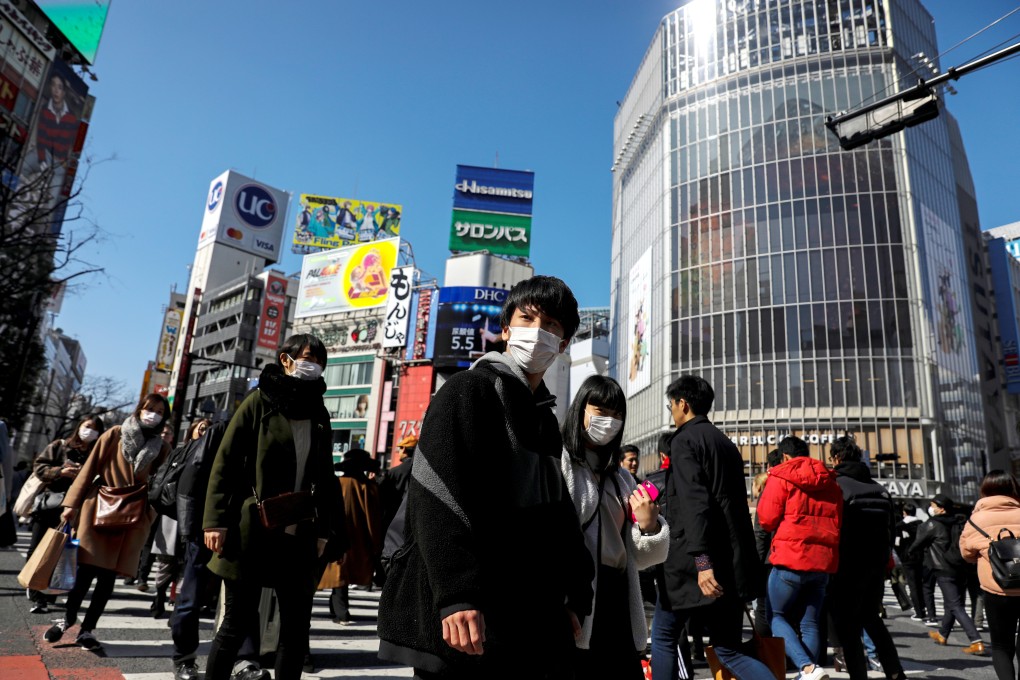Japan must ‘fix leaking coronavirus faucet’ before addressing economy as outbreak spreads
- Japan’s economy already contracted in the fourth quarter of 2019 due to a sales tax increase in October with the government drafting a record budget for 2020
- Japanese factories depend on Chinese-made components, while retailers depend on big-spending Chinese tourists, both of which have been disrupted by the outbreak

The rapid spread of coronavirus infections is posing a major threat to Japan’s already weakened economy, which contracted in the final quarter of 2019 after a sales tax increase dampened consumer spending.
The government has already drafted a record 102.7 trillion yen (US$933 billion) budget for the upcoming 2020 financial year, starting in April, which includes 13.2 trillion yen (US$120 billion) in economic stimulus measures, but at this point, there is no prospect for any additional fiscal or monetary policy response.
The Bank of Japan, the nation’s central bank, also has only limited scope for expanding monetary stimulus, since its highly controversial negative interest rate policy cuts profit margins for lenders and income for savers.
It is more important to focus on containing the virus. You must fix the leaking faucet first, instead of worrying about what damage the leaked water will cause
It has also been buying massive amounts of government bonds and exchange traded funds, leaving the financial system awash with cash, but inflation is still far below its 2 per cent target.